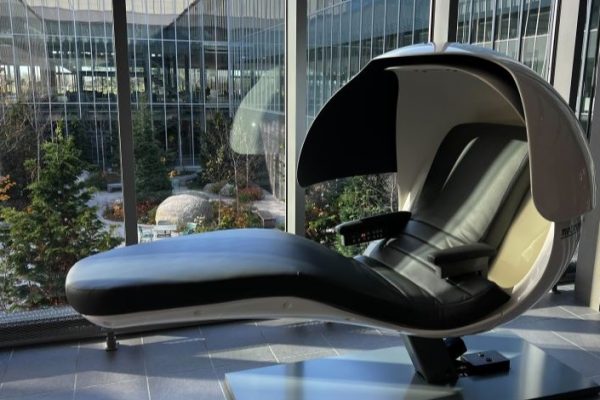Blog
Featured Article

The Intersection Between Exercise and Sleep
The relationship between exercise and sleep is a vital component of overall health. Both physical activity and sleep play significant roles in improving mental and physical well-being.
While exercise has long been associated with numerous benefits such as increased strength, improved cardiovascular health, and weight management, it also plays a crucial role in promoting better sleep. Sleep, in turn, supports recovery and performance, creating a mutually beneficial cycle between the two. Understanding the reciprocal benefits of sleep and exercise can help you make informed decisions about your health routines.
How Exercise Affects Sleep
Research has shown that regular physical activity can significantly improve sleep quality. Exercise helps regulate the body’s circadian rhythm, which is the internal clock that controls the sleep-wake cycle. By promoting a consistent routine of physical activity, individuals can better align their sleep patterns, falling asleep faster and experiencing deeper,...
Recent Articles

How to Fall Asleep Faster: 6 Easy Tips Backed by Science
IN THIS ARTICLE, WE WILL EXPLORE METHODS THAT IMPACT HOW QUICKLY YOU MAY FALL ASLEEP AND OFFER TIPS YOU CAN TRY IMMEDIATELY TO FALL ASLEEP FASTER TONIGHT.

The Best Mattresses for Different Sleep Types
A GOOD NIGHT’S SLEEP IS ESSENTIAL FOR OVERALL HEALTH AND WELL-BEING, AND ONE OF THE MOST IMPORTANT FACTORS IN ACHIEVING RESTFUL SLEEP IS THE MATTRESS YOU SLEEP ON. OUR COMPREHENSIVE GUIDE WILL HELP YOU FIND THE BEST MATTRESS FOR YOUR SLEEP TYPE.

The Rise of Nap Pods: Improving Productivity and Mental Health
In today’s fast-paced work environment, the need for effective strategies to enhance productivity and support mental health has never been more critical. One innovative solution gaining popularity is the nap pod, or napping pod, which offers a dedicated space for short, restorative rests. These cozy, often futuristic-looking capsules are popping up in workplaces around the globe, and for good reason.
Older Articles

- How Sleep may Improve Employee Productivity
- ASMR For Sleep: Science, Benefits, and How to Use
- Sleep to Reduce Anxiety: The Natural Treatment
- Best Pillow for your Sleep Style
- How much deep sleep should I get?
- How much sleep do I need?
- The Connection Between Endorphins, Sleep and Memory
- How Menopause Affects and Changes Sleep
- Understanding Adolescent Sleep
- Sleeping Late: Is It Bad For Your Health?
- The Importance of Our Circadian Rhythm
- The Connection Between Sleeplessness and Diabetes
- What to Eat for a Good Night’s Sleep
- CBD and Sleep: An Overview
- Understanding Newborn Sleep
- Exercise and Sleep
- Nap before or after workout?
- Restless Leg Syndrome (RLS): Causes and Treatment
- Light Box Therapy for Seasonal Affective Disorder (SAD)
- Daylight Savings Time Tips for Parents
- Sleeping during pregnancy
- Sleep Apnea – Causes and Treatment
- 5 Reasons why hitting Snooze is a No-Go
- Nightmares, Night Terrors, and Sleeplessness
- Best Breathing Exercises for Sleep: Calm the Mind and improve sleep quality
- How to Stop Sleep Inertia – 6 Actionable Tips
- The Relationship between Sleep and Weight Loss
- Are Alarm Clocks Bad for You?
- Alcohol and Sleep: What You need to Know
- Common Causes of Insomnia
- Light box therapy for jet-lag
- Why Worry about Sleep Deprivation Among Students?
- Stress and Sleep: How the two Interact
- Hydrogen Therapy for Muscle Recovery
- Molecular Hydrogen Therapy easily Explained
- Here are the Best Natural Sleep Remedies for a Good Night’s Rest
- Sleep recovery for athletes
- Employees nap more when working from home – and that’s a good thing
- The sleep stigma endures – ending it is more relevant than ever
- Your Employer should encourage Napping at Work – Here’s why
- 10 Great Reasons to get a Massage Chair at the Office
- Blue Light – How does it affect Our Sleep?
- How to rest well, according to a Silicon Valley sleep consultant
- 22 Famous Nappers: How Napping was these People’s Key to Success
- Pets in bed – is it a good idea?
- Best pillow: Which type is ideal for you?
- Caffeine and Sleep: 3 FAQ’s
- Why do People Snore while Sleeping?
- 12 tips on how to fall asleep right now
- What Temperature should a Bedroom be?
- Sleep Cycles: How the Sleep Stages affect Your Health
- Best length of Time for a Power Nap
- Massage Chairs Beginner’s Guide and Cautions
- The Benefits of Cat Naps
- What is a Coffee Nap?
- What is a nappuccino?
- Time to reinvent the Siesta?
- Restworks’ Power Nap Guide
- The future of the workplace
- Focus on Work Soundtrack


